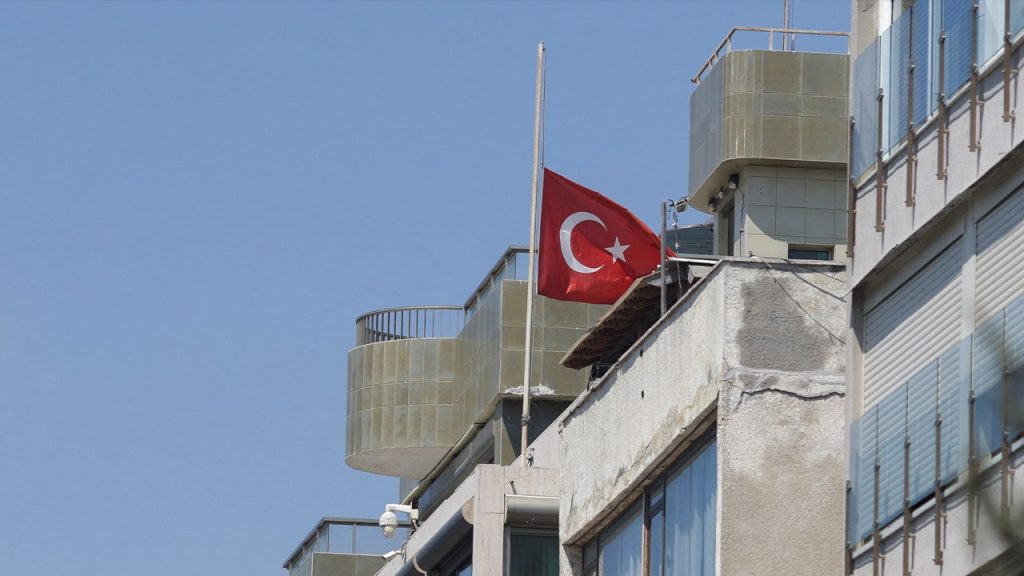Turkey sparked outrage on Friday when President Recep Tayyip Erdoğan ordered a day of mourning for the death of Hamas leader Ismail Haniyeh, and flags around the world, including in Israel, were lowered to half-mast. Israel’s foreign minister summoned the Turkish ambassador in response, criticizing Turkey’s support for “Hamas’ murderers and rapists.” Erdoğan has been accused of turning Turkey into a dictatorship due to its backing of Hamas. Pictures on social media showed the Turkish flag lowered in Tel Aviv and Washington, D.C., but verification was not immediately available.
The killing of Hamas leader Ismail Haniyeh in Tehran with a hidden explosive device has escalated tensions in the region. Erdoğan has condemned the attack in Iran, questioning how a bomb could have been planted months in advance in a building closely monitored by the Iranian Revolutionary Guard. Israel has not claimed responsibility for Haniyeh’s death, unlike a recent strike in Beirut that killed Hezbollah leader Fuad Shukr. Iran, Hamas, and Hezbollah have all pointed fingers at Israel for the assassination of Haniyeh, and have vowed revenge.
The Israeli government’s strong reaction to Turkey’s display of mourning for Haniyeh indicates the deep-seated animosity between the two nations. Erdoğan’s support for Hamas has been a point of contention, with Israel viewing the Palestinian group as a terrorist organization. This incident further strains already tense relations between Turkey and Israel, with accusations of dictatorship and support for violent extremists being thrown around.
The lowering of the Turkish flag in Tel Aviv and potentially in Washington, D.C., raises concerns about diplomatic norms and the consequences of openly mourning a figure considered a terrorist by some countries. The lack of immediate responses from the Turkish embassy and the U.S. State Department adds to the ambiguity surrounding the incident and the motivations behind the show of respect for Haniyeh. The use of diplomatic channels to express disapproval and reprimand indicates a desire to address the situation through official channels.
The death of Ismail Haniyeh and the subsequent fallout highlight the complex web of alliances and rivalries in the Middle East. Iran, Hamas, and Hezbollah’s pledge to avenge Haniyeh’s death against Israel underscores the ongoing conflicts in the region. The uncertainty surrounding the circumstances of Haniyeh’s assassination and the lack of clear attribution add to the speculation and tension in the area. The differing responses of various countries and organizations further complicate the situation, pointing to the need for careful diplomacy and conflict resolution efforts.
The incident involving the mourning for Hamas leader Ismail Haniyeh serves as a flashpoint for broader issues in the Middle East, including territorial disputes, ideological conflicts, and power struggles. Turkey’s support for Hamas and Israel’s condemnation of the group illustrate the deep-seated divisions in the region. The assassination of Haniyeh and the accusations directed at Israel by Iran, Hamas, and Hezbollah reflect the ongoing tensions and hostilities that threaten to escalate into more violence. Addressing these underlying issues and finding common ground through peaceful means is crucial for stability and security in the Middle East.













